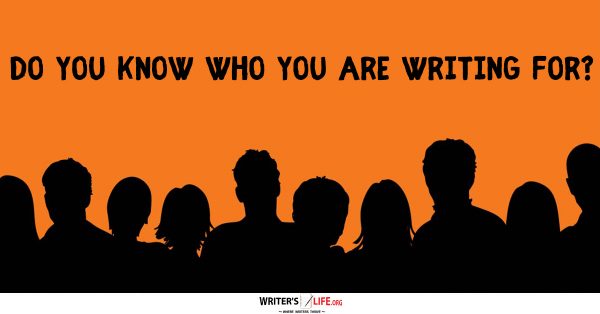- How To Tackle Jealousy In Creative Writing
- Common Submission Mistakes
- How To Stop Your Blog Becoming Boring
- The One Thing Every Successful Writer Has In Common
- How To Make Yourself Aware Of Publishing Scams
- Why Almost ALL Writers Make These Grammar Mistakes At Some Point
- 5 Tips For Authors On How To Deal With Rejection
- Top Mistakes to Avoid When Writing a Novel
- How to Avoid Common New Writer Mistakes
- 10 Mistakes New Fiction Writers Make
Do you Know Who You Are Writing For?

When you sit down to write it is always a good idea to ask yourself before you start ‘Who am I writing this for?’
The answer may be obvious and straightforward, or it might be elusive and complicated.
Are you writing for yourself? Do you have a very particular person in mind? Do you want your opinion or story to be heard by a particular group? Do you want to be acknowledged? Or perhaps you are just writing for anyone who will listen?!
Of course, it can be a combination of many of these things. Most writers would say that they write both for themselves - for the love of creating stories and playing with language, and for their audiences - whoever they may be.
How important is it to know who you are writing for? Most writers would argue that it is imperative. Indeed, if you are hoping to have commercial success having a target audience in mind will help you to craft and shape your writing so that it appeals directly to them. You might also want to think about how to attract readers from further afield. Not just the lovers of the genre, or the ones who already agree with your opinion who will naturally gravitate towards your work, but those on the fringes too. Perhaps those who think they would have no interest in what you have to say - how do you persuade these audiences to listen to you, or to take a chance on your writing and just ‘give it a go?’
How do you find the right balance between being true to yourself, your motivations and passions and writing for an audience - telling them what they want to hear?
The key to effective writing is knowing you reader, and being able to accurately predict what they want, and what they expect and then adhering to that or, alternatively, surprising them and showing them something new, different and more exciting than they had ever anticipated.
How to identify your audience.
Ask yourself the following questions.
Who do I hope will read this? Write down who your ideal reader would be, give them a name, a personality, bring them to life. This person is your target audience; you need to discover how they think, what excites them, what turns them off. Get to know them as intimately as possible, and you will have the best chance of getting them to see your point of view, engage with your characters, buy your product or do whatever it is you are trying to persuade them to.
Who else might read this?
Don’t just limit yourself to your ideal audience, think further beyond them. Think of all the places your book, article, blog post, or newsletter might end up - are there other people who it might reach that you haven’t considered? How could you reach out to them and connect with them further and more effectively?
You also need to consider what you are hoping to achieve by communicating with your audience. It might be to sell products, increase their understanding of a particular topic, to get them to share your work, to sign up to a newsletter, or it might be to persuade them round to your way of thinking, to be moved or inspired by your story, or simply to enjoy your book! Your aims are important because if you don’t fulfil them, no matter how many people you have reached, you won’t feel satisfied that you have achieved what you set out to achieve.
Understanding who you are writing for, regardless of the type of writing you are doing can make all the difference when it comes to connecting with your audience, creating a following and motivating them to act! So next time you sit down to write, make sure you consider who your reader is and think about how you can speak to them.

Bethany Cadman -author of 'Doctor Vanilla's Sunflowers'


























